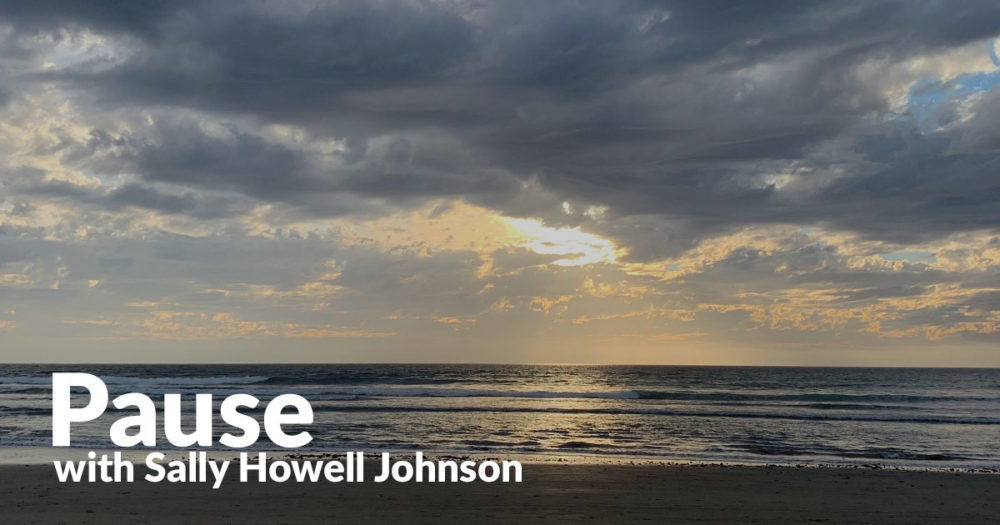“Seeds germinate in the dark,
sing their roots, develop stems.
It is the way of thought also.
Only when what has been invisible
breaks the surface can you see
what to weed,
what to feed and water.”
~Gunilla Norris, A Mystic Garden
Yesterday at worship, during the prayers of the people, someone offered a prayer of gratitude for the seven seed catalogues that had arrived in her mailbox this past week. One for each day of the week! In most places this might seem an odd expression of thankfulness but given the fact that in Minnesota we have not seen the ground since early October, everyone knew exactly what she meant. The snow that came early and has continued every day, minus two, in January is beginning to play with our minds. Our household has not received any of the winter blessings in the form of colored pictures of beautiful flowers and regular and exotic vegetables yet. But yesterday’s prayer planted a certain sense of expectation. Now I will be vigilant as I watch each day’s mail arrive. The catalogues are, after all, a sign of winter hope.
Hope comes to us in many ways. When we encounter a new born baby, most of us would describe that experience as one of hope. We might even say “God has said yes to the world again.” The rising of the sun every morning is also a sign of hope. Like our ancient ancestors we often sense the new opportunities that arrive with the beginning of that first ray of new light after the darkness of the night. The beginning of a new year can often signal a sense of hope, the chance to begin again, to right some wrongs, to recommit ourselves to change. Many experiences of hope are a natural part of the rhythm of life. Like the wisdom of the writer of Ecclesiastes, we know that ‘to everything there is a season.’ This kind of hope is simply another thread in the pattern of fabric we know as life.
But there is also, I believe, a hope we need to create, we need to feed. This kind of hope is a choice. It may be something we must commit ourselves to even when it is invisible to us. Like the promise of the seeds that can be ordered in the midst of winter, we embrace a hope of what is yet to be, yet to be dreamed. Those of us who are parents or have been teachers know this kind of hope-as-choice quite well.
I was reminded of this very fact yesterday afternoon as I participated in the funeral of one our dear saints of the church. This amazing woman had been a pillar of our church and a life-long teacher and missionary. She had taught and served children in the Minneapolis public schools and had also in Africa. I have had the privilege of knowing her for more than twenty years. We once even slept on the floor of a New Orleans church fellowship hall where we accompanied youth on a mission trip. I remember her laughter and how she clearly and gently led our youth and those we met in an orphanage where we assembled new beds for the children. She was no nonsense person but was also full of love. Love for church, for children and for God.
As many people spoke about the gifts this faithful woman had imparted to them, I was struck with what hope she had planted in the world. She boldly and with deep commitment worked with children who could have been lost in the shuffle of society. But her belief in each as a beloved child of God allowed her to continue to help them rise to their best selves. Hopefully, each of us have had at least one person in our life who bestowed just such hope in the container of who we are.
In addition to this lovely woman, I have the blessing of knowing her grandson when he was just a little boy. I had observed over the years, the doses of hope she had poured into him. And so, to now see this handsome young man stand confidently in his grief and speak of his grandmother, of her love for him and her church, brought tears to my eyes. As a journalist, he chose his words wisely, and with expertise, just as she would have liked. He spoke eloquently about her life story and the good with which she moved in his life. He was clear in outlining what was truly important to her. The hope which she had planted in him, was now being passed on through his education, his devotion, his love, his work.
Sometimes the colorless season of winter is real. Other times there are just days or weeks or years that need a good infusion of hope. A hope we choose. For all those who have chosen to have hope in us, may we give thanks this day. And may we choose to pay forward the many hopes that have been sent our way.
